Make sure you never miss an update. subscribe to the progress update newsletter
In this issue:
Features
Fish Forever Program Round-Up
What We’re Reading
A Year in Review: Fish Forever 2020
Reflections from Dr. Steve Box, Managing Director
At Rare, we always envisioned 2020 to be Fish Forever’s proverbial ‘leap’ year: the special year, halfway through its latest five-year plan, when the program evolves from a mass prototype to networked subnational geographies, delivers managed access with reserves across large swaths of coastal waters, and shifts local fishing communities’ collective demand for the approach toward large-scale behavior change.
But such middle years can be tricky. They are often when the initial energy and excitement of a new approach may wane, when results trickle in more than they pour and inspire, and when program staff and the communities they serve are head down and knee deep implementing the work. Middle years test our hypotheses, question our faith in results, and try our patience.
2020 did indeed prove challenging as COVID-19 stalled our expected acceleration. But the pandemic also instigated growth and forced a sustained period of programmatic innovation, adaptation, and heightened collaboration, as evidenced in the Fish Forever section of Rare’s “Year in Review.”
COVID-19 highlighted, like never before, the importance and relevance of coastal fishers for food security and employment. As the economy’s established pillars crumbled, people turned to their rural communities and fishing as the safety net to bring them through the crisis. In 2020, the need and belief for Fish Forever’s foundation—empowered communities, responsive local government, and a clear vision to balance sustainable production with effective protection—became ever-more-apparent.
We enter 2021 confident that the solutions crafted under COVID’s duress and the strengthened resolve of communities and government will propel us forward. My hope for next year is that the social and political movement growing across hundreds of coastal communities and their local governments continues to strengthen and expand and that we all learn to embrace the collective power of individual action for people and nature.
We remain committed to delivering transformational change for the world’s coastal communities. Thank you to our network of donors, partners, and communities worldwide for believing in us and in a world where we can all Fish Forever.
To 2021 and beyond,
 |
Dr. Steve Box Managing Director, Fish Forever Rare |
Features
 Fish Forever in 2020
Fish Forever in 2020
The global pandemic forced our country teams to adapt and innovate in their work to safeguard biodiversity, secure food systems, protect livelihoods, and fight climate change. They did so with a mindset of solutionology that inspired us all. Read on for country highlights.
 Green Guanaja Leads to Blue Recovery
Green Guanaja Leads to Blue Recovery
In need of a conservation bright spot? Five years after putting fully protected marine reserves in place, the waters around the Caribbean island of Guanaja are overflowing with life.
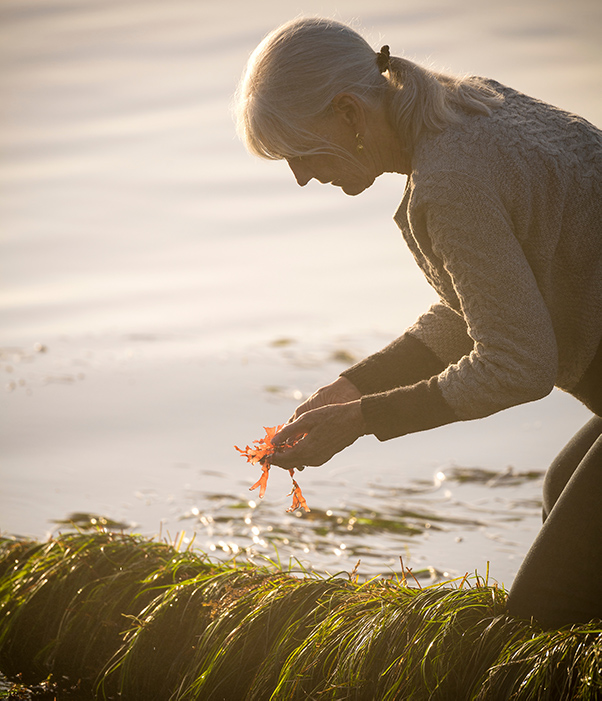
The Ocean-Climate Connection: A Rare Conversation with Julie Packard
In October, Julie Packard—ocean advocate, conservationist, and Executive Director of the Monterey Bay Aquarium—joined Rocky Sanchez Tirona, Fish Forever Philippines Vice President, for a conversation about the ocean-climate connection. We were honored to host such a tremendous oceans champion.
 Networking Marine Reserves
Networking Marine Reserves
Our new video explainer details an approach to Networking Marine Reserves that ensures habitats critical to small-scale fisheries thrive.
Fish Forever Round-up
Our Global Network
*Real-time program data. For more details, visit the Fish Forever program portal: https://portal.rare.org.
Growing the Global Network of Local Government Leaders: For the first time, in September, Rare convened a virtual panel of high-level government officials from six coastal nations to discuss the small-scale fishing sector’s vital role in securing local food systems and economies while protecting and sustainably managing their resources. In November, Rare convened local government leaders who were early adopters of the fisheries reform pledge. Leaders from the Philippines, Brazil, Honduras, Mozambique, and Indonesia provided insights and inputs on expanding the network and ideas for actions and activities they should prioritize across Fish Forever partner countries in 2021.
Celebrating the Adoption of a Landmark Motion: Rare was the lead sponsor on a landmark motion calling on the International Union for Conservation of Nature’s 1000+ global membership to design behavior-centered solutions for conservation. This motion gathered 27 other organizations for co-sponsorship.
Talking Climate Resilience and Blue Solutions on the Global Stage: Rare Indonesia and the German Corporation for International Cooperation (GIZ) recently co-hosted a virtual side event, ‘Fishers on the Frontline,’ at the European Climate Diplomacy Week in Indonesia. The innovative talk-show session convened CSOs, national government, and community partners to discuss community-based approaches to sustainable and climate-resilient small-scale fisheries during COVID-19. For our other global convenings, read the recap of Rare at CBA14 and view the multimedia story related to green recovery and ecosystem-based adaptation, check out our contributions to the Ocean Panel blue recovery report, and watch our webinar with the Global Island Partnership and the Local 2030 Island Network to discuss how nature-based solutions contribute to improved food security for coastal communities.
Enhancing Ocean-Climate Action: Rare collaborated with partners on a film showcasing the nature-based solutions and calls to support small-scale fisheries featured in a forthcoming paper, “Opportunities for Ocean-based Climate Action.”
Mozambique
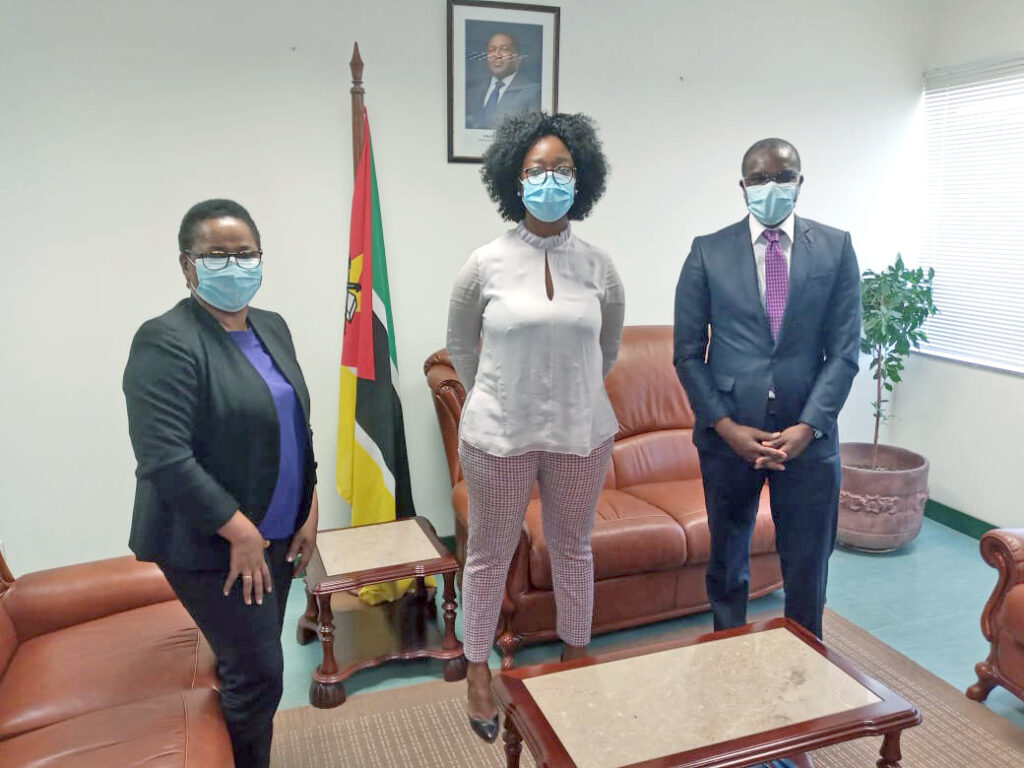
Implementing the New Regulation for Managed Access: Following the September announcement of a landmark regulation empowering community-based fisheries management in Mozambique, Fish Forever verified and validated managed access with reserves map boundaries with communities and local government throughout the program.
Behavior Adoption Campaigns Launched: In October 2020, Rare in Mozambique launched the virtual behavior adoption campaign, “Responsible Fishing,” by disseminating information to over 50,000 community members across four fishing communities—targeting fishers, fish buyers, and saving club members—using bulk text messages, community radio programs with call-ins and prizes, and campaign videos.
Philippines
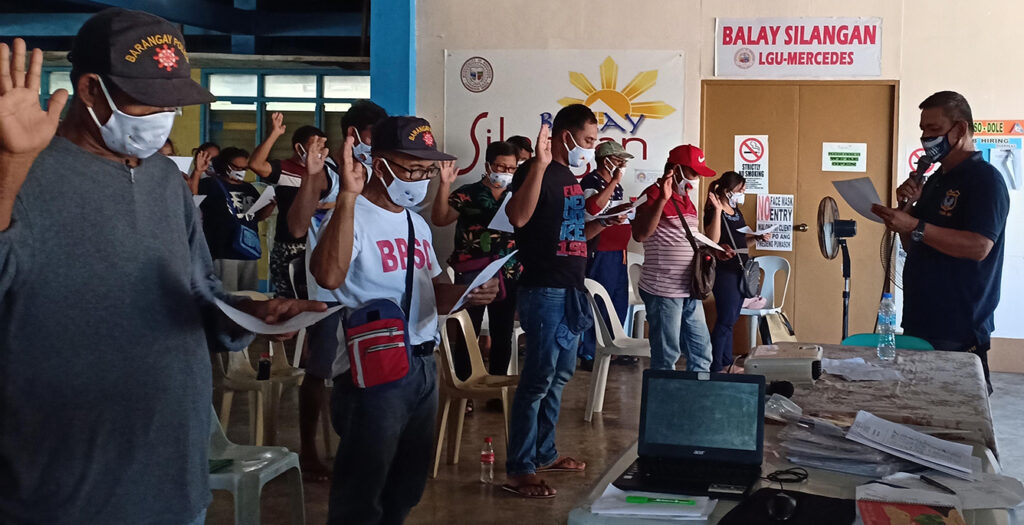
Bantay Dagat Bill Filed at the Senate: Fish wardens guarding marine protected areas and municipal waters from illegal fishers will benefit from the recent “Bantay Dagat Welfare and Incentives Act” Senate filing. The proposed legislation aims to provide fish wardens with insurance, PhilHealth coverage, hazard and subsistence allowance, training, and access to loans while also granting tenure security, given that most fish wardens are volunteers. The Technical Working Group on illegal, unregulated, and unreported fishing—created after 2019’s coastal fisheries summit co-organized by the Philippines’ Department of Agriculture – Bureau of Fisheries and Aquatic Resources, League of Municipalities, and Rare—is pushing the proposed legislation.
A New Partnership with BPI BanKo: The microfinance arm of BPI BanKo (Bank of the Philippine Islands) and Rare have teamed up to boost financial literacy and provide mobile banking services for Fish Forever savings clubs. BPI BanKo and Rare virtually signed the agreement in October. As part of the deal, starter kits that include a smartphone and initial load will be given to selected cash agents, while nearly 1,000 ATM cards will be made available to members who want to open formal savings accounts.
Mesoamerican Reef (MAR)
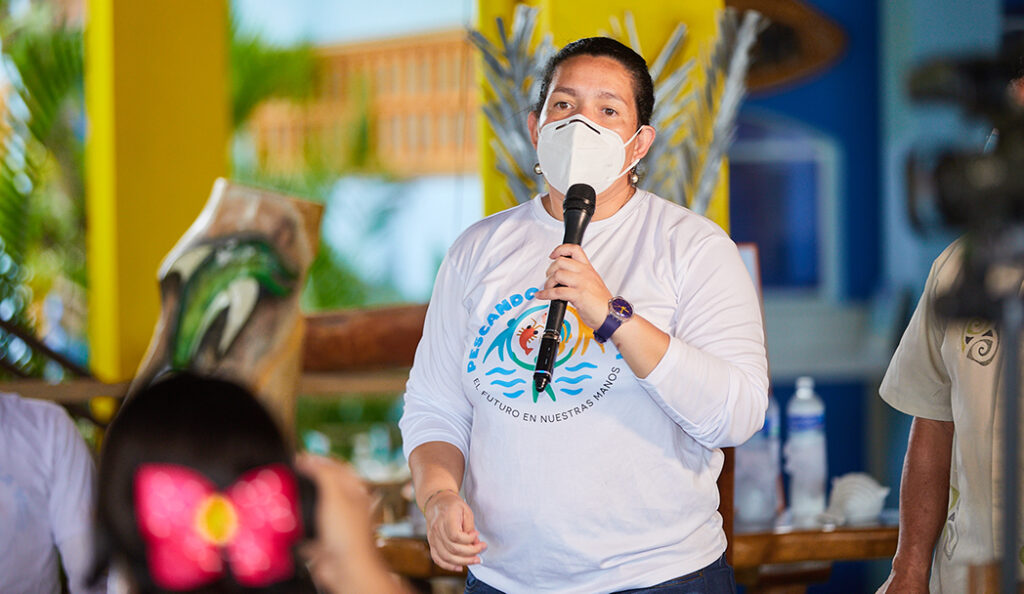
MAR Momentum: Fish Forever in the MAR is advancing its program despite the hurricanes and ongoing pandemic. In addition to numerous campaign launches, the program has also supported the Fisheries Department’s fisher registration efforts by hosting registrations drives, advanced legal designation of Honduras’ first and largest managed access with reserves area (currently under review) and participated in the global mayor’s network roundtable with mayor champions.
Fishing for Life Campaign Launches Continue: Over 400 fishing families joined the September launch event in the Omoa municipality. This 5-minute video summarizes key event moments. A few weeks later, the program hosted an event to engage youth in the Santa Fe municipality to spread and amplify the campaign’s key messages within their communities. The event included a drawing competition and pledge wherein children and young adults would commit to encouraging their parents to fish responsibly.
2020 Hurricanes Eta and Iota: In November, Hurricanes Eta and Iota battered Honduras’ Caribbean coast. While Rare team members are safe, the devastation impacts our work in the months ahead and reaffirms the need to support fishing communities’ resilience in the face of adversity.
Pacific Islands
Palau and Federated States of Micronesia (FSM)
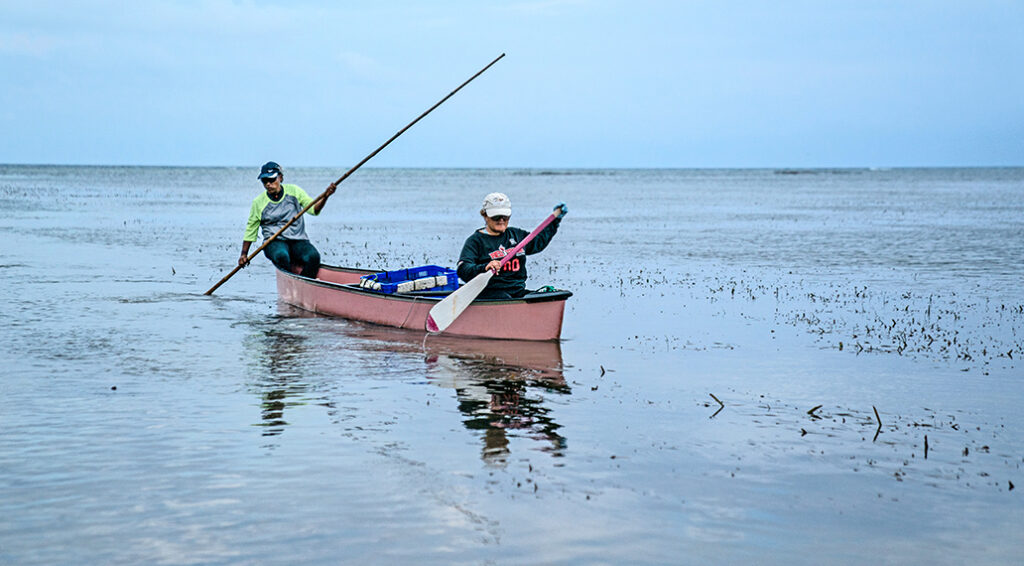
A National Fisher Registration System for Palau: Rare recently signed an MOU with the Bureau of Marine Resources under the Ministry of Natural Resources, Environment and Tourism to develop and implement a national fisher registration system. This system will help the Palau government gather relevant information on fishers, gear, and licenses and make this available to fisheries managers to enable data-based decision making.
A Fishing Tournament Promotes Sustainable Fishing: Rare, together with partners like the Micronesia Conservation Trust, the Conservation Society of Pohnpei, the Pohnpei Menin Katengensed Fish Market, and The Nature Conservancy, recently hosted the 3rd annual Ahi Mour Pwokowah (Our Life, Our Responsibility) fishing tournament as part of the ongoing campaign to promote sustainable fishing in the state of Pohnpei.
Indonesia
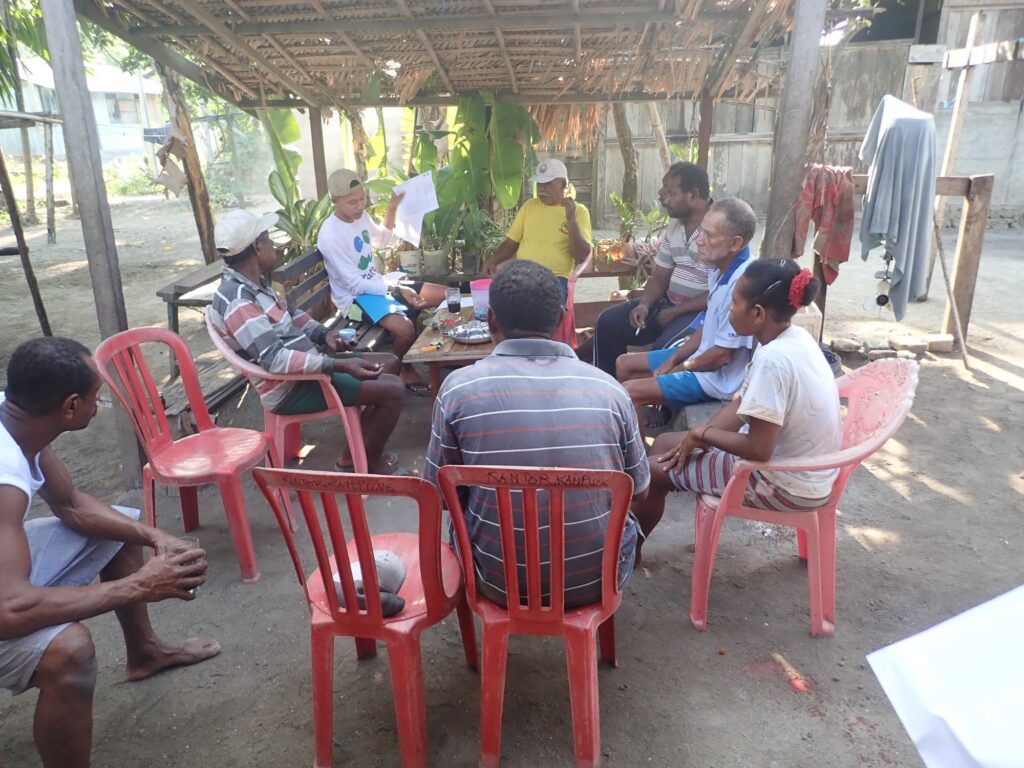
Piloting tracking devices: Fish Forever has initiated a program with Global Fishing Watch, funded by the U.S. State Department, to pilot tracking devices on small-scale fishing vessels in Indonesia. Working closely with the Center for Behavior & the Environment at Rare and our Innovative Finance team, this new project in Wakatobi National Park will investigate the utility of the tracking devices for helping fishers manage and regulate their fisheries.
Strides in Southeast Sulawesi for Managed Acces with Reserves (MA+R): Rare has now finalized 21 managed access with reserve (MA+R) area designs in the province; ten have been legalized to create a fisheries management body that oversees these areas and are finalizing their management plans. Rare has trained 42 district government implementing partners in managing these areas. Meanwhile, nine of eleven divisions of the province’s district-level marine and fisheries agencies have allocated ~$160,000 in 2021 for activities related to implementing MA+R in its coastal waters; All 11 have proposed including MA+R activities in their 2021 work plans and budgets. This unprecedented funding and inclusion is based on a new Minister of Home Affairs regulation that mandates local governments include the approach in their annual workplans and budgets. Rare has worked closely with national and district governments over time to facilitate this funding, inclusion, and implementation. At the village-level, Rare continues working closely with village governments in applying their funds to MA+R activities (the government has already included the approach in their annual workplans) and regularly trains village, sub-district, and district leaders on integrating the activities within their workplans.
Building financial literacy: Additionally, 73 fish buyers and traders in Southeast Sulawesi use the OurFish app to manage their businesses. Approximately 40 have attended a targeted financial literacy training session to link their online OurFish use with their business approaches and learn how to access various financial and social protection services. Further, Rare has partnered with targeted fishing communities to train 100 households in financial literacy and create five savings clubs to help weather the pandemic.
Brazil
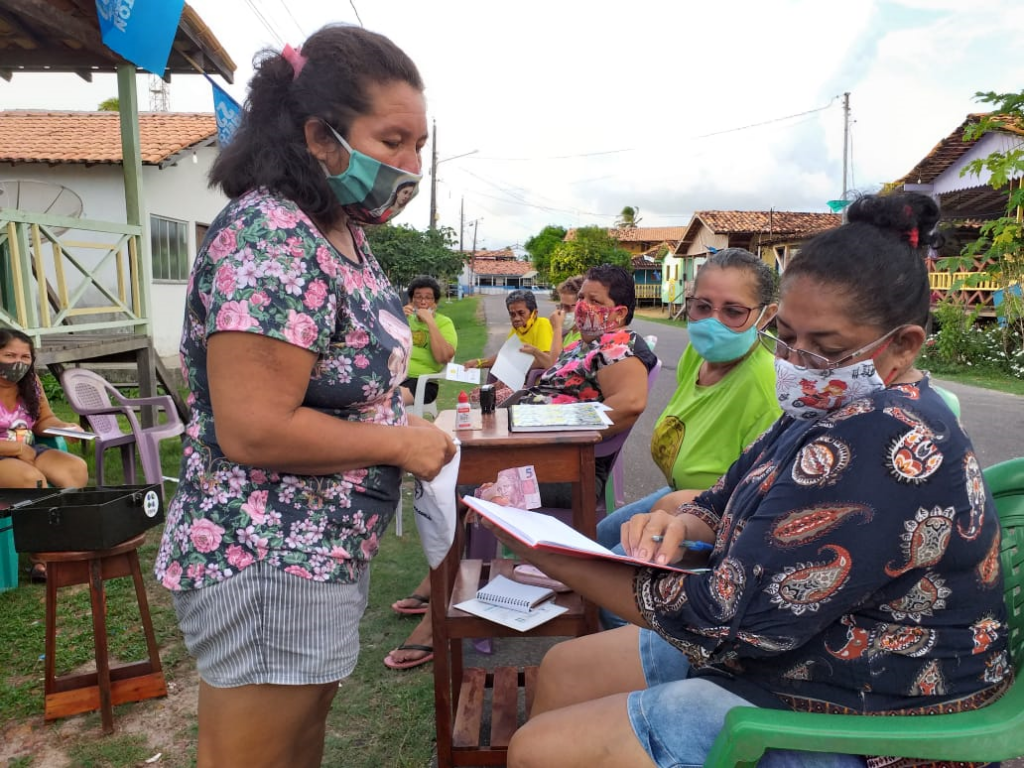
A New Digital Training model: Fish Forever recently launched a virtual class exclusively through WhatsApp to educate fishers and partners on sustainable fisheries management. This class is part of the program’s reinvented digital training model, which trains fishers, communities, and critical partners in networking marine reserves and enhancing management bodies and local associations.
Teaming up with CI and Oceana: As part of an NGO alliance in Brazil’s Northeast, and in response to COVID-19 and recent oil spill crises, Fish Forever, Conservation International, and Oceana are creating a database to systematically inform public policy decision making regarding the communities affected by these disasters.
New Savings Clubs on the Amazon Coast: Brazilian fishers, like coastal fishers worldwide, struggle to save money and be included in the formal economy. In response, Fish Forever has helped fishers create three savings clubs in Pará state—one in the Pesqueiro community at Resex Soure and two in the Tacuandeua and Tamatateua communities at Resex Caeté-Taperaçu.
What We’re Reading
Community management yields positive impacts for coastal fisheries resources and biodiversity conservation (Jun 2020)
Smallhorn‐West, P.F., Stone, K., Ceccarelli, D.M., Malimali, S.A., Halafihi, T.I., Bridge, T.C., Pressey, R.L. and Jones, G.P., 2020. Community management yields positive impacts for coastal fisheries resources and biodiversity conservation. Conservation Letters, p.e12755.
This paper evaluates the impact of two management approaches (full no-take areas and areas of exclusive fishing rights) on coral reef fishes in Tonga. The study found that no-take areas positively impacted the diversity, abundance, and size of target fish. In contrast, exclusive access areas were similar to predicted counterfactual conditions, likely because fishing pressure remains constant. These findings show the potential to scale a dual approach to community-based management to achieve meaningful outcomes for coastal fisheries resources and biodiversity.
A connectivity portfolio effect stabilizes marine reserve performance (Sep 2020)
Harrison, H.B., Bode, M., Williamson, D.H., Berumen, M.L., and Jones, G.P., 2020. A connectivity portfolio effect stabilizes marine reserve performance. Proceedings of the National Academy of Sciences, 117(41), pp.25595-25600.
This research measured larval dispersal patterns and quantified temporal variability in recruiting a commercially important coral grouper from a marine reserves network on the Great Barrier Reef. The authors found that recruitment contributions from particular reserves are very variable. However, the reserve network creates a connectivity portfolio effect that reduces larval supply variability to neighboring coral reefs. These results show that effective reserve networks can ensure a consistent replenishment of exploited fish species.
A decade and a half of learning from Madagascar’s first locally managed marine area (Sep 2020)
Gardner, C.J., Cripps, G., Day, L.P., Dewar, K., Gough, C., Peabody, S., Tahindraza, G., and Harris, A., 2020. A decade and a half of learning from Madagascar’s first locally managed marine area. Conservation Science and Practice, p.e298.
This assessment underscores insights from implementing Madagascar’s first locally managed marine area. The authors highlight that supportive NGOs, locally managed resources, implementation of poverty alleviation initiatives, decision-making by resource users, a diversified funding model, and adaptive management were aspects that contributed to positive outcomes. Significant challenges included: lack of control on fishery supply chains, promoting participation and good governance, rule enforcement, and maintaining funding for long-term management.
Climate change impacts on living marine resources in the Eastern Tropical Pacific (Oct 2020)
Clarke, T.M., Reygondeau, G., Wabnitz, C., Robertson, R., Ixquiac‐Cabrera, M., López, M., Ramírez Coghi, A.R., del Río Iglesias, J.L., Wehrtmann, I. and Cheung, W.W., 2020. Climate change impacts on living marine resources in the Eastern Tropical Pacific. Diversity and Distributions.
This study projects shifts in habitat suitability of over 500 fish and invertebrate species in the Eastern Tropical Pacific likely to occur by 2050 under climate change scenarios. The simulations show that habitat suitability decreases in some fisheries along Pacific Central America, with high species turnover projected for small-scale fisheries. Range shifts were associated with movement from warmer to cooler waters and towards more oxygenated shallower inshore habitats. These findings highlight how climate change will impact coastal fisheries and the need to consider shifts in habitat suitability in designing effective marine management measures.
Understanding non-compliance in small-scale fisheries: Shark fishing in Myanmar’s Myeik Archipelago (Oct 2020)
MacKeracher, T., Bergseth, B., Maung, K.M.C., Khine, Z.L., Phyu, E.T., Simpfendorfer, C.A. and Diedrich, A., 2020. Understanding non-compliance in small-scale fisheries: Shark fishing in Myanmar’s Myeik Archipelago. Ambio, pp.1-14.
This analysis gathers non-compliance data in five small-scale fishing communities in Myanmar’s Myeik Archipelago. The authors found that although 49% of 144 fishers surveyed were aware of a nationwide shark fishing ban, the need to procure food and income, especially in younger fishers, drove non-compliance. These findings highlight that effective shark conservation requires addressing social-economic issues such as poverty, food security, and lack of alternative income sources.
Actors’ perceptions of government performance in support of value chain development in marine small-scale fisheries in Kenya (Oct 2020)
Kimani, P., Wamukota, A., Manyala, J.O. and Mlewa, C.M., 2020. Actors’ perceptions of government performance in support of value chain development in marine small-scale fisheries in Kenya. Marine Policy, p.104221.
This study examines government performance perception, such as policy and legal value chains, by small-scale fisheries actors. The analysis found that the local government’s perception rate was lower than that of the national government, independent of socio-economic factors. The authors found that old fishery laws and policies were poorly implemented and that current reforms may address some problems.
Sustainability indicators for the integrated assessment of coastal small-scale fisheries in the Brazilian Amazon (Nov 2020)
Jimenez, É.A., Gonzalez, J.G., Amaral, M.T. and Frédou, F.L., 2020. Sustainability indicators for the integrated assessment of coastal small-scale fisheries in the Brazilian Amazon. Ecological Economics, p.106910.
This study evaluates sustainability in small-scale coastal fisheries across the Brazilian Amazon based on 31 indicators within six evaluation fields. The authors found that fisheries are in unfavorable conditions in all evaluation fields analyzed, especially in the ethical and institutional fields. The authors recommend moving towards participatory management, local governance, and greater support to build cohesive social organizations.
Exploring gender inclusion in small-scale fisheries management and development in Melanesia (Dec 2020)
Mangubhai, S. and Lawless, S., 2021 Exploring gender inclusion in small-scale fisheries management and development in Melanesia. Marine Policy, 123, p.104287.
This study conducted interviews with fisheries managers and practitioners working in Fiji, Solomon Islands, and Vanuatu. The authors found that gender inclusion approaches were applied through community-based programs, national-level research and policy, and gender-sensitive recruitment policies. However, over 75% of approaches were designed to ‘reach’ women, but very few benefited, empowered, or transformed women’s lives—indicating the poor understanding of what gender inclusion means in practice. The authors argue that gender inclusion in small-scale fisheries needs to become the new norm.
Fish Forever: A solution to coastal overfishing – delivered by empowering communities through clear rights, strong governance, local leadership, and participatory management – that protects essential fish habitat and regulates fishing activities to replenish and sustain coastal fisheries.
Goal: To deliver replicable and scalable community rights-based management across ten countries, using a global network of 500 local leaders to secure livelihoods for one million fishers, alleviate poverty, ensure food supply, and protect coastal ecosystems from chronic threats.
Fish Forever Countries: Philippines, Indonesia, Mozambique, Brazil, Honduras, Guatemala, and the Pacific Island countries of Palau and the Federated States of Micronesia.
Fish Forever is possible thanks to the support of many, including the following current donors:

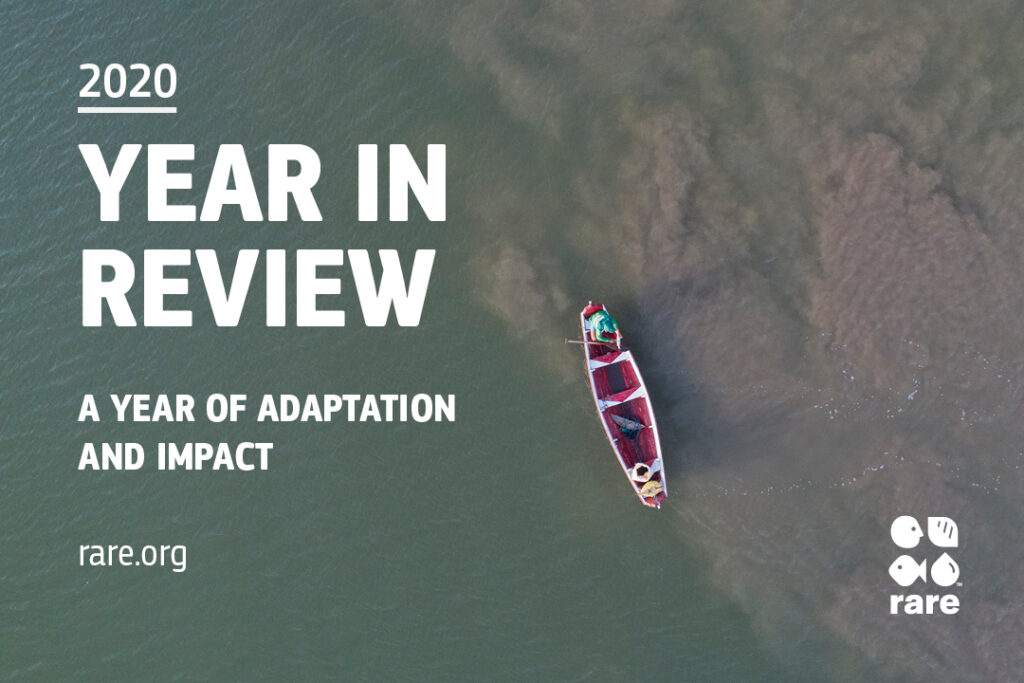 Fish Forever in 2020
Fish Forever in 2020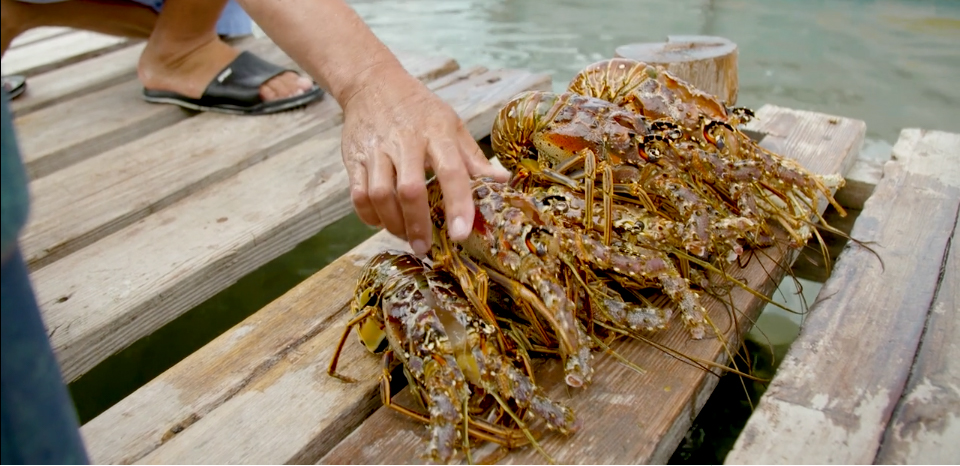 Green Guanaja Leads to Blue Recovery
Green Guanaja Leads to Blue Recovery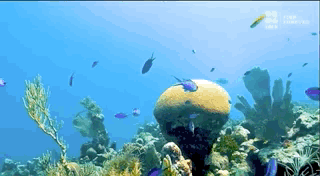 Networking Marine Reserves
Networking Marine Reserves